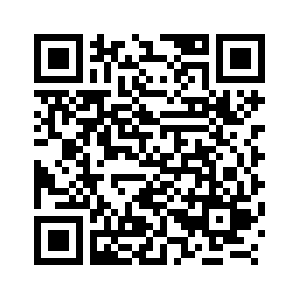Letter from Mideast: Survival first -- 4 days in Syria's Sweida
Source: Xinhua
Editor: huaxia
2025-07-21 14:31:45
by Munther al-Shoufi
SWEIDA, Syria, July 21 (Xinhua) -- The silence of dawn felt like a held breath on July 14. Outside my apartment window, the streets of southern Syria's Sweida lay taut with tension -- Druze fighters manning checkpoints, uncertainty thick in the air.
My fingers still tingled from filing overnight dispatches for Xinhua, but then it was no longer about being professional. It became personal.
On my way back home after a short stroll on the street, getting my firsthand smell of fear, I bumped into my neighbor, a Lebanese national.
"Are you leaving?" The man grabbed my arm, asking me in a shaky voice. I shook my head, trying to soothe myself because saying yes would have given me a jolt of stress I wasn't ready to deal with.
By nightfall, gunfire shredded the dark, and shells fell closer to our street. My sons tracked army movements through social media -- not the typical credible sources, but that was all we had.
Sleep abandoned us that night.
July 15 birthed a biblical exodus. From our balcony, I watched families cramming into cars and scampering away to the countryside -- women clutching children, elders with hollow eyes like obituaries.
That image broke me. "Pack now," I told my wife and two sons. They would flee to her ancestral village near the Jordanian border.
Meanwhile, I stayed behind -- foolishly brave.
The city was unraveling around me: Refrigerators hummed their last, shops became tombs, and armed men patrolled wrecked homes. That night, Israeli jets screamed overhead while shells cratered nearby streets. Reports said local factions had reclaimed parts of the city, but no one felt victorious.
That same day, the government imposed a full-day curfew, signaling the severity of the situation and limiting movement amid the escalating clashes.
By July 16, even my courage cracked. With two relatives, I joined the river of the displaced flowing south to the town of Salkhad, where I reunited with my wife and sons near the Jordanian border. Schools and prayer halls overflowed with the newly homeless.
One question haunted me on the road: Would any of us ever return home?
I've covered Syria's war for years. I've seen devastation. I've documented flights. But tasting this fear -- the terror of losing home forever -- was new.
A communications blackout severed us from the truth: no phone, no internet, no way to verify anything. The Sweida-Damascus highway bled out. We traded rumors.
July 17 brought fragile calm. Reports claimed government forces had pulled out. In three hours, my family raced home on dwindling fuel, only to find my neighbor frantic at the door. "Tribal convoys are coming!" he cried.
Our unpacked bags became luggage again, and our car gasped its last breath in the village of al-Kafr. From there, a bus carried us back to exile in Salkhad, then onward to the Jordanian border.
My eldest son's eyes mirrored the void: "Will I ever finish my exams?" He had missed two already.
"Survival first," I replied.
Now, we remain here -- tired, displaced, wary. Others like us have also returned to their ancestral lands, which they hadn't seen for years. Hope is in the air, tied precariously to the ceasefire. But so is fear.
We long for home. We just don't know when, or if, home remains. ■



